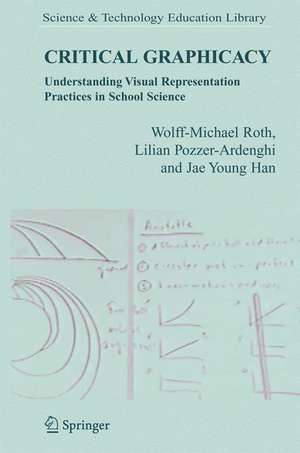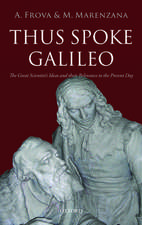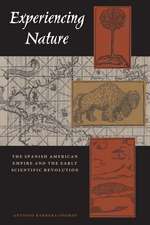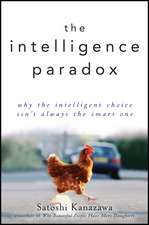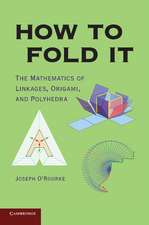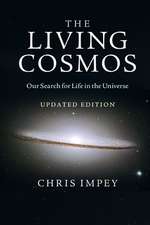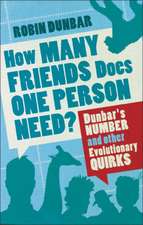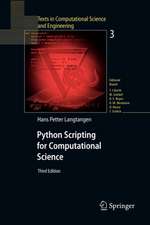Critical Graphicacy: Understanding Visual Representation Practices in School Science: Contemporary Trends and Issues in Science Education, cartea 26
Autor Wolff-Michael Roth, Lilian Pozzer-Ardenghi, Jae Young Hanen Limba Engleză Paperback – 8 feb 2007
| Toate formatele și edițiile | Preț | Express |
|---|---|---|
| Paperback (1) | 389.31 lei 43-57 zile | |
| SPRINGER NETHERLANDS – 8 feb 2007 | 389.31 lei 43-57 zile | |
| Hardback (1) | 400.26 lei 43-57 zile | |
| SPRINGER NETHERLANDS – 5 iul 2005 | 400.26 lei 43-57 zile |
Din seria Contemporary Trends and Issues in Science Education
- 20%
 Preț: 568.91 lei
Preț: 568.91 lei - 20%
 Preț: 814.76 lei
Preț: 814.76 lei - 18%
 Preț: 951.77 lei
Preț: 951.77 lei - 15%
 Preț: 638.43 lei
Preț: 638.43 lei - 15%
 Preț: 636.80 lei
Preț: 636.80 lei - 15%
 Preț: 633.68 lei
Preț: 633.68 lei - 15%
 Preț: 637.46 lei
Preț: 637.46 lei - 18%
 Preț: 951.29 lei
Preț: 951.29 lei - 15%
 Preț: 644.95 lei
Preț: 644.95 lei - 18%
 Preț: 951.91 lei
Preț: 951.91 lei - 18%
 Preț: 1224.06 lei
Preț: 1224.06 lei - 18%
 Preț: 953.65 lei
Preț: 953.65 lei - 15%
 Preț: 641.71 lei
Preț: 641.71 lei - 15%
 Preț: 697.15 lei
Preț: 697.15 lei - 15%
 Preț: 644.18 lei
Preț: 644.18 lei - 15%
 Preț: 640.55 lei
Preț: 640.55 lei - 15%
 Preț: 640.06 lei
Preț: 640.06 lei - 15%
 Preț: 639.08 lei
Preț: 639.08 lei - 18%
 Preț: 1388.68 lei
Preț: 1388.68 lei - 15%
 Preț: 465.66 lei
Preț: 465.66 lei - 18%
 Preț: 1832.08 lei
Preț: 1832.08 lei - 15%
 Preț: 641.85 lei
Preț: 641.85 lei -
 Preț: 398.15 lei
Preț: 398.15 lei - 15%
 Preț: 644.18 lei
Preț: 644.18 lei - 18%
 Preț: 945.47 lei
Preț: 945.47 lei - 15%
 Preț: 644.30 lei
Preț: 644.30 lei - 18%
 Preț: 1215.04 lei
Preț: 1215.04 lei
Preț: 389.31 lei
Nou
Puncte Express: 584
Preț estimativ în valută:
74.50€ • 77.98$ • 62.00£
74.50€ • 77.98$ • 62.00£
Carte tipărită la comandă
Livrare economică 31 martie-14 aprilie
Preluare comenzi: 021 569.72.76
Specificații
ISBN-13: 9781402057113
ISBN-10: 1402057113
Pagini: 316
Ilustrații: XXVIII, 288 p.
Dimensiuni: 155 x 235 x 17 mm
Greutate: 0.45 kg
Ediția:2005
Editura: SPRINGER NETHERLANDS
Colecția Springer
Seria Contemporary Trends and Issues in Science Education
Locul publicării:Dordrecht, Netherlands
ISBN-10: 1402057113
Pagini: 316
Ilustrații: XXVIII, 288 p.
Dimensiuni: 155 x 235 x 17 mm
Greutate: 0.45 kg
Ediția:2005
Editura: SPRINGER NETHERLANDS
Colecția Springer
Seria Contemporary Trends and Issues in Science Education
Locul publicării:Dordrecht, Netherlands
Public țintă
Professional/practitionerCuprins
Toward a critical graphicacy.- The work of reading graphs.- Graphicacy and context.- Photographs in biology texts.- Graphicacy in lectures.- Interpretive graphicacy in practice.- Layered inscriptions: what does it take to get their point?.- Semiotics of chemical inscriptions.- Reading layered, dynamic inscriptions.- Epilogue: steps toward critical graphicacy.
Textul de pe ultima copertă
School science is dominated by textbook-oriented approaches to teaching and learning. Some surveys reveal that students have to read, depending on academic level, between ten and thirty-six pages per week from their textbook. One therefore has to ask, To what degree do textbooks introduce students to the literary practices of their domain? Few studies have addressed the quality of science curriculum materials, particularly textbooks, from a critical perspective. In this light, we are concerned in this book with better understanding the reading and interpretation practices related to visual materials—here referred to as inscriptions—that accompany texts. Our overarching questions included: ‘What practices are required for reading inscriptions?’ and ‘Do textbooks allow students to develop levels of graphicacy required to critically read scientific texts?’ Some of the more specific questions included: ‘What are the practices of relating inscriptions, captions, and main text?,’ and ‘What practices are required to read inscriptions in school textbooks?’ That is, we are interested not only in understanding what it takes to interpret, read, and understand visual materials (i.e., inscriptions), but also in understanding what it takes to engage inscriptions in a critical way. It is only when citizens can critically engage with language (texts, speech) and inscriptions that they become knowledgeable users of television, newspapers, and magazines, who can choose or leave aside particular expressions as part of the particular politics that they participate in.
Caracteristici
Leading text in the field, there are no other books of this kind Relevant to researchers, educators, and teachers Suitable for use in classes concerned with visual representation practices and textbooks in science
